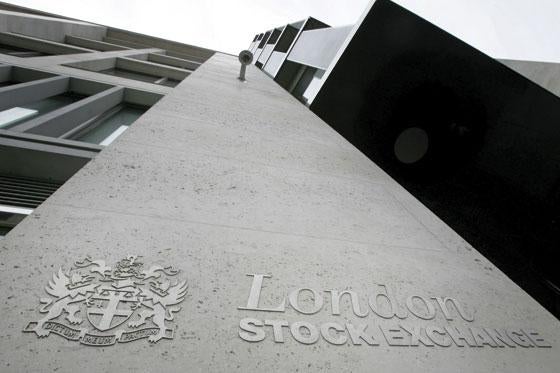
The US and UK’s largest listed news businesses have lost more than £15bn from their market capitalisations since the global Covid-19 crisis began, a Press Gazette investigation has found.
And while many companies are beginning to bounce back as investors begin to regain some confidence in the world economy, newspaper publishers and news broadcasters appear still to be lagging behind in share price terms (see charts below).
Between them, global newspaper publishing giant News Corp, the New York Times Company, transatlantic regional press group Gannett, Daily Mail owner DMGT and Daily Mirror publisher Reach lost nearly £3bn from their market caps on UK and US stock markets between 28 February and the Easter weekend – equal to 21 per cent of their total value.
In broadcasting: Fox Corporation, ViacomCBS and ITV in the UK have lost a combined £9bn – or 27 per cent – in the same period.
The collapse of the advertising market – prompted by an economic slump caused by the global outbreak of coronavirus – is a major issue for both newspaper publishers and broadcasters.
The dramatic fall in advertising spend has also hit Google owner Alphabet and Facebook, which together dominate the market. Between them, the tech giants lost $137bn (or £111bn) from their market capitalisations between 28 February and 9 April, according to data compiled by Ycharts.
However, as demonstrated by the logarithmic line graph below, created on Datawrapper to demonstrate relative changes, Alphabet and Facebook have fared better than the newspaper and broadcast businesses. The $137bn drop only represents a 10 per cent fall for each of the companies.
Covid 19 and media share prices: Business information companies are faring best
The best-performing news businesses comparatively are those that specialise in information and big data. The journalistic arms of these business information companies tend to rely on subscribers and events for revenue, rather than advertising.
The eight business information companies examined for this research have lost a combined £4bn on the stock market since 28 February, a three per cent drop.
Of the newspaper publishers, Gannett – which publishes more than 260 daily local publications across North America and owns regional newspaper group Newsquest in the UK – was the worst performing. Its value fell nearly 80 per cent, from $550.2m to $122m between 28 February and the start of the Easter weekend, according to Ycharts.
Press Gazette revealed this week how more than 1,000 local newspapers and other publications across the US are facing cuts due to coronavirus.
In the same period, Reach – which publishes the Mirror, Express and Star national newspapers as well as hundreds of regional titles across the UK –has seen its market value fall by 40 per cent, from £439m to £264m, according to Press Gazette calculations. The company revealed plans last week to furlough a fifth of its staff to deal with Covid-19 losses.
News Corp’s $1.6bn market cap loss between 28 February and 9 April represents a 22 per cent fall, while the New York Times’s $1.1bn drop is equal to 18 per cent.
DMGT – the company behind news titles including the Daily Mail, MailOnline and Metro – has fallen five per cent, or by £78m, according to Press Gazette calculations. This is likely because the company has several non-consumer media arms, including a business-to-business publishing.
Perhaps because of its strong B2B business, DMGT’s market value curve is much flatter than that of rivals.
The next chart shows that large news and information businesses like Thomson Reuters and Relx – formerly known as publisher Reed Elsevier – have not been immune to the global market crash sparked by Covid-19.
But the majority of these companies have recovered most of their losses in recent weeks, despite many specialising in events that have been, or will likely be, canceled in the near future. Ascential, the firm formerly known as Emap that is best known for hosting an annual advertising summit in Cannes, currently appears to be an exception.
In the final graph, a focus on broadcasters with large news and content arms shows a steep drop in market values through March.
While the companies highlighted – Fox Corp, ViacomCBS and ITV in the UK – appear to be heading in the right direction this month, they are nowhere near making up for their earlier losses yet.
Email pged@pressgazette.co.uk to point out mistakes, provide story tips or send in a letter for publication on our "Letters Page" blog
